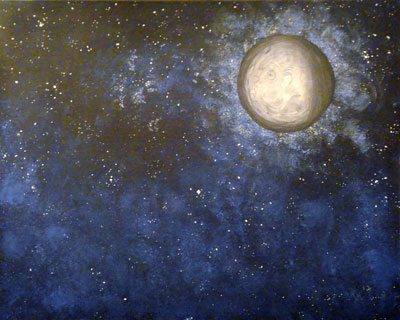All Nonfiction
- Bullying
- Books
- Academic
- Author Interviews
- Celebrity interviews
- College Articles
- College Essays
- Educator of the Year
- Heroes
- Interviews
- Memoir
- Personal Experience
- Sports
- Travel & Culture
All Opinions
- Bullying
- Current Events / Politics
- Discrimination
- Drugs / Alcohol / Smoking
- Entertainment / Celebrities
- Environment
- Love / Relationships
- Movies / Music / TV
- Pop Culture / Trends
- School / College
- Social Issues / Civics
- Spirituality / Religion
- Sports / Hobbies
All Hot Topics
- Bullying
- Community Service
- Environment
- Health
- Letters to the Editor
- Pride & Prejudice
- What Matters
- Back
Summer Guide
- Program Links
- Program Reviews
- Back
College Guide
- College Links
- College Reviews
- College Essays
- College Articles
- Back
To Infinity and Beyond... MAG
I watched as the engines of the Falcon 9 roared to life and engulfed the launch pad of Cape Canaveral in a sea of smoke and flames. Two seconds later, I was greeted by a sonic blast; the low-pitched rumble from the launch site finally became audible. The rocket lifted off the ground and began its ascent into the Earth’s atmosphere. My eyes never left its red glow and trail of exhaust as the spacecraft pierced through the morning sky. Although I did not fully comprehend the impact of this event on the future of humanity, this was the moment that my 10-year-old mind was inspired to venture into the depths of outer space.
In order to satiate my expanding curiosity in spacecraft and their endless possibilities, I gathered more information than most 10-year-olds could handle. I sent countless letters to government space agencies and privatized spaceflight companies such as NASA, JPL, SpaceX, and Northrop Grumman. In response, I received handwritten notes, pictures of astronauts, details about missions into outer space, and graphs of data collected during these missions. These not only depicted the complexity of the current technology, but exposed me to the realities of space exploration and magnified my interest in the study of celestial structures.
For the next two years, I was exceedingly grateful for the plethora of information I was given, yet my thirst for knowledge was unsatisfied. I asked my father to purchase a reflecting telescope, powerful enough to pinpoint the location of a nebula thousands of lightyears away. He did, buying me several nebula, lunar, and solar filters to show his support for my pursuit of knowledge. Using it, I could witness the heavenly beauty of the universe and try to better understand it. I spent countless nights outside until 3 o’clock in the morning, awestruck at the immense distance between the stellar bodies of the galaxy.
Through the enormous support I received from my parents and the community, my curiosity in the universe flourished throughout my career in high school. In tenth grade, I won the school science fair as Grand Champion for a project that studied the possibilities of developing and harvesting plants on other terrestrial planets. In eleventh grade, I joined my school’s robotics team with the ambition to work with similar technologies and programming techniques that are used in the voyages across the solar system. Since then, I have listened closely to the advances made by SpaceX and Boeing, two of the current leaders in the aerospace technology industry.
To this day, my enthusiasm for the exploration of outer space remains. The idea that life exists elsewhere in the universe continues to bewilder me. As humans, we are accustomed to the idea that Earth is the only planet with intelligent life. However, with over 400 billion galaxies in the universe and over three trillion planets in each galaxy, the number of planets within the universe is at least one septillion. Clearly, this idea that Earth is the only planet with intelligent life in the universe contradicts all odds, and that is what attracts me most to the discovery of extraterrestrial life. Moreover, if we venture into the far reaches of our galaxy and discover a planet that is further into a process of climate change similar to our own, we could acquire more knowledge about the process occurring on our planet and curtail its effects. Not only could space exploration uncover life in the very depths of the universe, but it could describe the history of the universe to the human race and benefit our species with the knowledge it bestows.

Similar Articles
JOIN THE DISCUSSION
This article has 1 comment.

The exploration of the universe has always been a topic of interest to me. In this piece, I express the origins of my deep enthusiasm for the cosmos. I hope that people will finish reading my essay with the inspiration to gain knowledge in a topic that interests them.